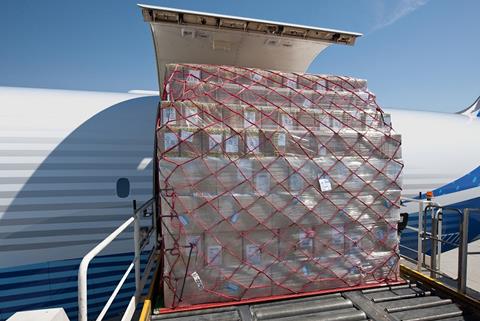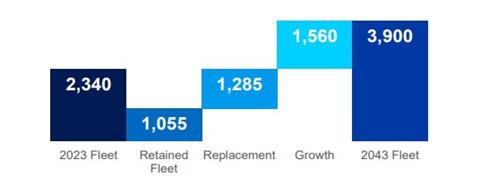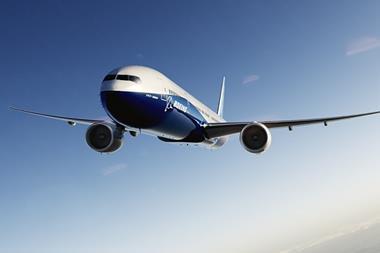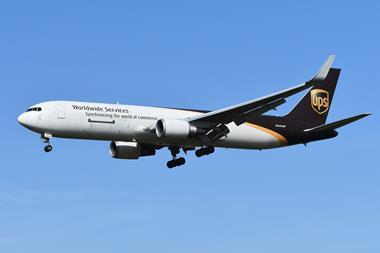
The global air cargo fleet is forecast to rise to 3,900 freighters by 2043, an approximate 66% increase from 2,340 cargo aircraft in 2023.
This addition of 2,845 freighters over the next 20 years includes 1,005 production freighters and 1,840 passenger to freighter (P2F) conversion aircraft, according to Boeing's 2024 World Air Cargo Forecast (WACF).
Deliveries will include 1,250 standard-body, 785 medium widebody and 810 large widebody freighters.
"Freighter deliveries will total 2,845, with roughly two-thirds being converted passenger airplanes. Of those conversions, nearly 70% will be standard body freighters," said Boeing.
The aircraft manufacturer said that nearly half of production and conversion deliveries will replace older freighters, noting that many older aircraft remain in operation due to recent market needs.
Boeing also predicts that the large widebody freighter fleet will nearly double, driven by demand in high-growth Asian markets.
"Although large freighters have historically come from both factory production and conversion, as was the case with the 747, we forecast that future demand will favor factory-produced freighter models," said Boeing. "Carriers value the superior efficiency, lowest unit cost, higher utilization, and greater capability offered by new, factory-build large widebody freighters."
While sustained demand is expected for widebody freighters, customers that have ordered or plan to order the next generation Boeing 777-8F are in for a long wait. Last month, Boeing said it would delay the entry to market of the 777-8 freighter until 2028 following industrial action that has disrupted its aircraft manufacturing work.

Looking at regional growth, east and south Asian markets will see the highest traffic growth per year, driven by expanding economies and consumer demand.
Boeing said the Asia-Pacific fleet is expected to nearly triple, with carriers in that region requiring the most deliveries (980), followed closely by North America (955). These two regions will account for more than two-thirds of global deliveries, stated the company.
Furthermore, India's domestic air cargo market will nearly quadruple as express and e-commerce networks expand.
Overall, express carriers are anticipated to grow at an average annual rate of 5.8%, faster than the industry average, due to an increasing role in e-commerce distribution and the expansion of express networks in emerging markets. Express carriers are expected to serve one quarter of the air cargo market in 20 years from now, up from 18% currently.
"Due to their greater flexibility in handling express cargo, general cargo as well as e-commerce, these carriers are anticipated to outpace overall industry growth and increase their market share to 25% by 2043," said Boeing. "However, other types of carriers will remain essential to e-commerce transport, particularly as e-commerce shipments become denser over time."
Boeing believes air cargo traffic, measured in CTKs, will increase by an average of 4% per year through 2043.
"As the quickest and most reliable way to move goods, air cargo's sustained growth has returned the industry to its long-term trend," said Darren Hulst, Boeing vice president of commercial marketing. "There will be many drivers for continued freighter demand over the next 20 years, including expansion of emerging markets and global growth in manufacturing and e-commerce."
https://www.aircargonews.net/airlines/strike-ends-as-machinists-approve-new-contract-with-boeing/
https://www.aircargonews.net/airlines/boeing-delays-777-8f-to-2028-and-will-end-767f-production-in-2027/















